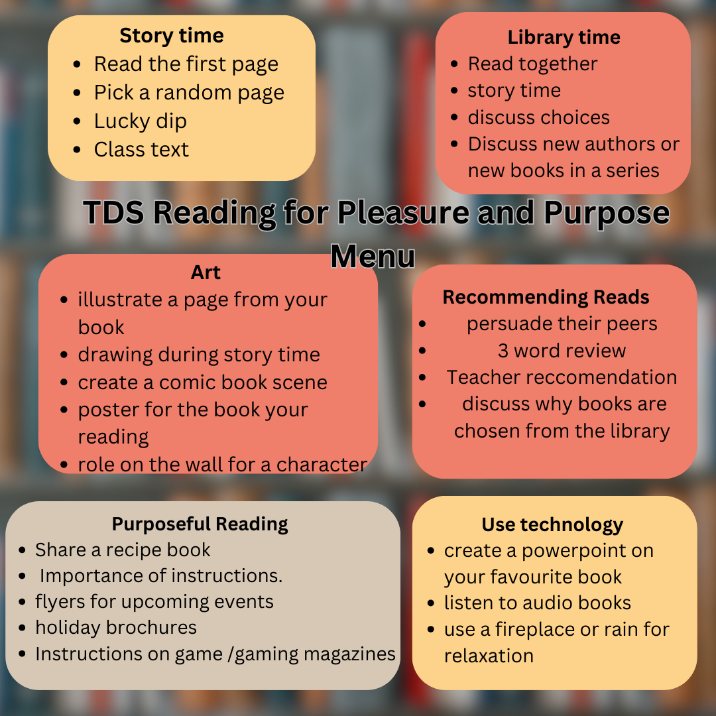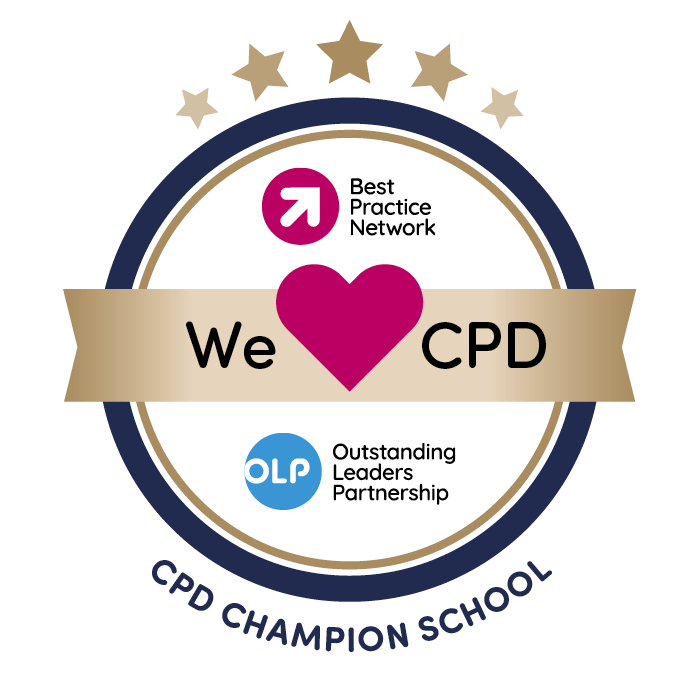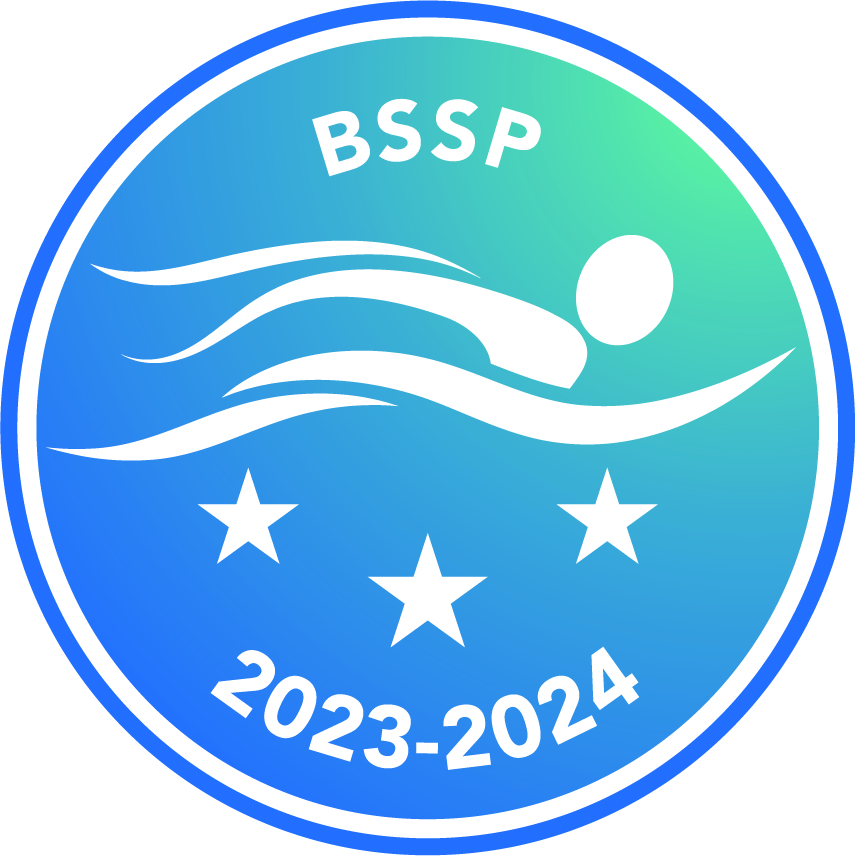Reading & Phonics
Reading Intent
Here at the Downley School we teach an enriching and diverse reading-based curriculum. We use a wide range of high-quality texts to engage and inspire reading and writing. At The Downley School we aim to teach the skills needed together with fostering a love and appreciation of reading and writing. We aim to create an environment where all children, no matter their background and starting point, read and write for enjoyment and understand that it is an essential skill for different purposes and audiences.
An integral aim for our teaching is to develop high standards of literacy in all children, essential for them to access the wider world and communicate freely. Pupils will be given opportunities to use their progressing English skills within a broad and balanced curriculum. This will provide opportunities to consolidate and practise taught literacy skills across a broad range of curriculum topics to embed lifelong learning and skills. English skills do not stand alone but are an integral part of all learning and wider life.
In reading lessons at The Downley School, our lessons are based on curating high-quality book talk based on a diverse range of books often linked to the classes writing topic. This discussion is taught through explicit and precise modelling of the skills needed (prediction, sequencing, summarising, retrieval and inference). Our lessons are not based on questions but rather building the skills needed through visualisation, enriching discussion and sharing of opinions in a nurturing and engaging environment.
At The Downley School we are passionate about reading and know the importance of promoting reading for pleasure and purpose and that it goes deeper than just being celebrated on World Book Day. Our teachers have a passion for reading themselves and work hard to instil a love of reading and books in all our children. Reading is continuously promoted and celebrated and is at the heart our English curriculum. In all classes, adults and children read together and share books. A breadth of books are used to explore diversity and different genres.
Reading Implementation
At The Downley School we are working to ensure quality and consistency in the teaching of reading across the whole school. Every child will encounter high quality teaching and lessons that are inspiring, engaging and carefully planned and delivered for them to achieve. To do this, we ensure that all staff at The Downley School have expert knowledge and feel confident in teaching high quality writing lessons. We do this by monitoring the quality teaching through regular learning walks and book looks. We aim to deliver a range of purposeful and specific CPD opportunities based on areas for improvement. This CPD is meaning that increasing consistency is been gained across the school. Where staff have less subject knowledge or confidence, they are supported through guided planning sessions with the English Leader and Assistant Head Teacher.
We are developing a whole school culture where there is a love of reading, and reading for both pleasure and purpose is highly valued; we aim to inspire every child to be a reader. We do this in several ways throughout the school day:
- Every teacher reads aloud to their class every day with a designated spot on the timetable,
- Daily reading lessons,
- All classes have a weekly slot where they can visit the school library,
- Class bookshelves,
Reading lessons
The whole school also takes part in taught reading lessons 3/4 times a week that are based on high-quality texts covering fiction and non-fiction throughout the school year. The focus of these lessons is to promote high quality book talk, deep understanding, and engagement in a range of texts that cover diversity, inclusion in line with the school’s values. The weekly timetable consists of three (KS1) or four (KS2) sessions a week.
These lessons include an abundance of high-quality book talk and rich discussion, fluency as well as an element of written comprehension. These lessons are planned and taught to model and guide the children in visualising, predicting and constructing a mental model of a specific text to help understand its meaning and wider context. Teachers explicitly model skills needed, and children given chances to practice both guided and independently: there is a focus on vocabulary and how it can be used to enhance meaning and effect.
Pupils will become better at each of the assessed aspects of reading when they read, think deeply about, and respond to texts through discussion and in writing. The knowledge, experience and insight that pupils gain from reading a text alongside the teacher supports them to understand and enjoy the texts they experience in both assessments and for pleasure.
Children routinely complete reading comprehension assessments.
Developing Reading for Pleasure and Purpose
Throughout the school day, small activities and practices take place to promote a love of reading, expose children to new and varied books. This includes a chance to talk and share books with their peers and adults. In the classroom, the teacher is an influencer and works to promote all aspects of reading with their class.
This looks like:
- Adults reading aloud daily,
- Informal book talk,
- Recommendations,
- Adults showing interest in what the children are reading,
- Praising reading,
- Children are encouraged to explore the books,
- Read for pleasure,
- Share their reviews with their peers,
- Creating a positive culture around reading for pleasure and for purpose.
 |
Some activities you might see are:
Book corners
At The Downley School we promote reading in the classroom. We create exciting and enticing environments full of books that the children are eager to read. In every classroom there is a mini library, a place for children to browse the best books, revisit the ones that the teacher has read to them, and borrow books to read or retell at home.
Book corners are interesting and contain age-appropriate books which feature well-known fictional characters or are new and tempting books that have been read in lessons.
In every classroom:
- Every book in a book corner should be worth reading.
- The books are facing outwards towards children and are at eye level.
- The number of books on display are limited and the ones that are, are inspiring and up to date.
- The more choice that is presented, the less children are likely to engage.
- The shelves are routinely refreshed to highlight topics, titles, or authors.
- Books from different cultures, countries showing diversity are available.
Home – School Links Reading
- Reading books
- Reading Logs
Reading Impact
Reading Assessment
Reading is assessed through PiXL reading comprehension assessments which are administered termly.
They understand that when we learn together, we grow together and succeed together.
Phonics Intent
At The Downley School, we follow the Little Wandle Letters and Sounds Revised (LWL&SR) scheme so that all children are taught a coherent sequence of lessons that builds upon prior knowledge. Through this scheme, children are introduced to phonemes, sounds & graphemes, and letters systematically. They are supported to develop and apply blending and segmenting skills for both reading and writing and provided with opportunities to apply their phonic knowledge when reading and spelling. Children are exposed to and taught phonetically decodable two-syllable and three-syllable words and the alternative ways of pronouncing and representing the long vowel phonemes. Through the programme, they explore spelling patterns and grammar, alongside developing a breadth of knowledge, skills and understanding in the recognition and spelling of ‘tricky’ (common exception) words. Children in Year 2 at The Downley School are also able to access further spelling support as a bridge between the end of the LWL&SR programme and KS2 (Bridge to Spelling).
Our children develop confidence, resilience and engagement in phonics lessons and a love for reading and writing. They are encouraged to borrow ‘sharing’ books from our school library in addition to their decodable reading books in order to develop a love for reading. All children can access targeted intervention programmes, such as Daily Keep Up (Rec & Y1) to fill smaller gaps, and SEND or Rapid Catch-Up (Y2-6) for children with larger gaps in their phonics learning.
Phonics Implementation
We teach early reading through systematic synthetic phonics. To implement our vision, in the early years and KS1 phonics is taught daily through the LWL&SR programme. The LWL&SR Progression document sets clear expectations for pupils’ progress within the programme to ensure that every child achieves success and that any gaps are identified as soon as possible. Children experience a clearly defined structure to the teaching and delivery of phonics lessons across all year groups in order to reduce cognitive load. Through direct teacher-led lessons, all children begin the session by revisiting and reviewing previous learning. This is followed by a ‘teach and practise’ section, where new learning (GPCs and tricky words) is taught, and the session ends with a ‘practise and apply’ activity. Staff delivering the programme are given CPD to ensure they feel confident in their own subject knowledge and the programme ensures that the national phonics criteria is fulfilled.
All children new to the school are assessed on entry using the LWL&SR Placement Assessment. Children who still need phonics in KS2 are identified by class teachers and assessed. If needed, they then receive daily phonics sessions using the LWL&SR Rapid Catch-Up programme. These sessions are based on stage not age.
Home – School Links Reading and Phonics
- EYFS and KS1 Parent information sessions on Phonics (Autumn Term)
- KS1 Parent information sessions on the Phonics Screening Check (Spring Term)
- Children following the phonics scheme take home phonically decodable books that are changed weekly. These follow the Little Wandle scheme.
- All children are able to access decodable reading books (main programme, Rapid Catch Up programme and Fluency programme) using their allocated Collins eBooks account.
Phonics Impact
The impact of the phonics curriculum at The Downley School can be seen through:
- Our children’s enjoyment of reading and writing.
- Our children’s skills and knowledge that demonstrates a systematic and progressive approach to the teaching of phonics.
- Our children’s fluency when reading, using segmenting and blending as key tools to success.
- Our children read and spell common exception words accurately.
- Our children’s ability to use alternative spelling choices correctly and apply these in their writing.
- Our results in the statutory Year 1 phonic screening checks, when compared to both local and national data.
Phonics assessment
LWL&SR assessments are carried out by the class / group teacher or trained teaching assistant every six weeks, after each five-week block of teaching. They are one-to-one assessments that, alongside teacher judgement, give a clear indication of the progress of each child. These assessments do not replace daily Assessment for Learning. Teachers do not wait until end of block checks to take action if a child is falling behind, instead they ensure the children keep up and get daily additional practice the moment they need it.
The Phonics Screening Check is carried out in June each year and targets are set to ensure children are at the expected level of learning and, if they are not, these children are receiving the appropriate support.
They understand that when we learn together, we grow together and succeed together.





